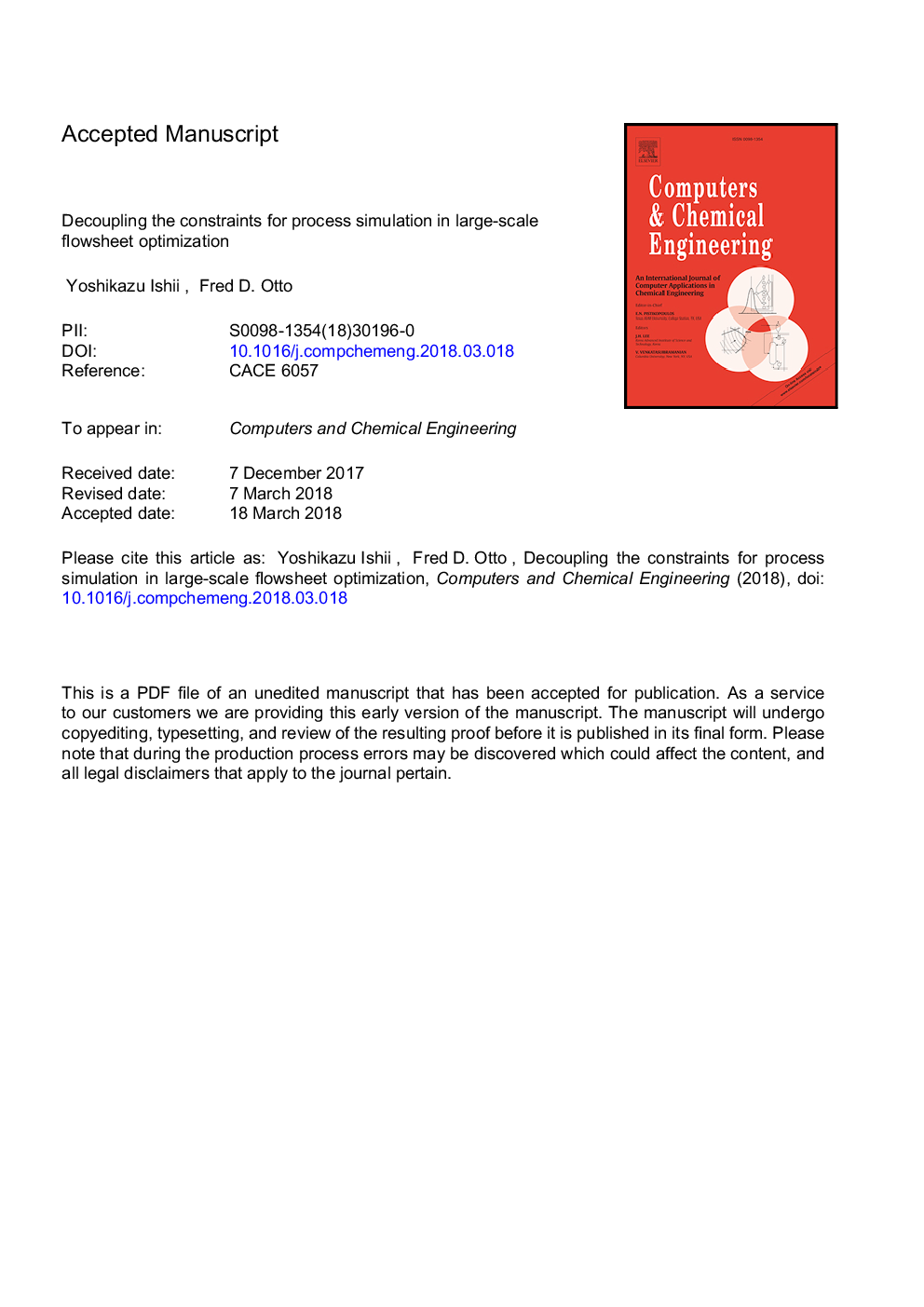| Article ID | Journal | Published Year | Pages | File Type |
|---|---|---|---|---|
| 6594844 | Computers & Chemical Engineering | 2018 | 40 Pages |
Abstract
A distinct advantage of sequential quadratic programming (SQP) is global convergence that ensures convergence from a remote starting point. When the constraints are highly nonlinear such as in flowsheet optimization, however, locally convergent Newton's method used in SQP as the equation-solving tool may deteriorate the behavior of convergence. Our recognition that this issue remains to be resolved motivated us to study a two-tier SQP approach where the constraints for process simulation consisting of nonlinear equations are decoupled from the KKT system in order to block the adverse influence of nonlinearity on global convergence. Our equation oriented (EO) process simulator (Ishii and Otto, 2011) is employed to decouple the constraints and for maintaining feasibility of the decoupled constraints. The effectiveness and potential of the two-tier SQP approach for reliably and efficiently solving large-scale flowsheet optimization problems are numerically illustrated with fully thermally coupled distillation problems.
Related Topics
Physical Sciences and Engineering
Chemical Engineering
Chemical Engineering (General)
Authors
Yoshikazu Ishii, Fred D. Otto,
